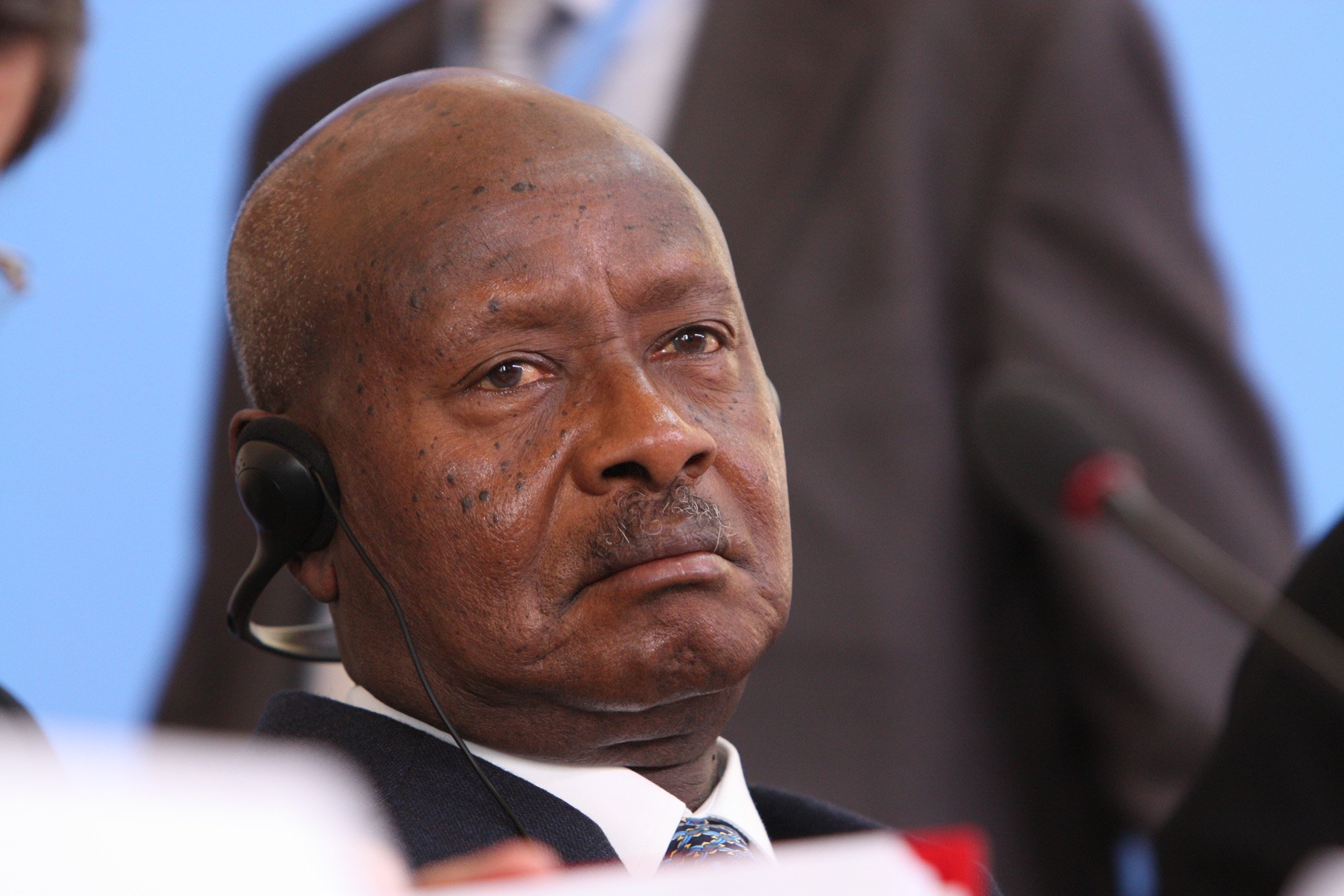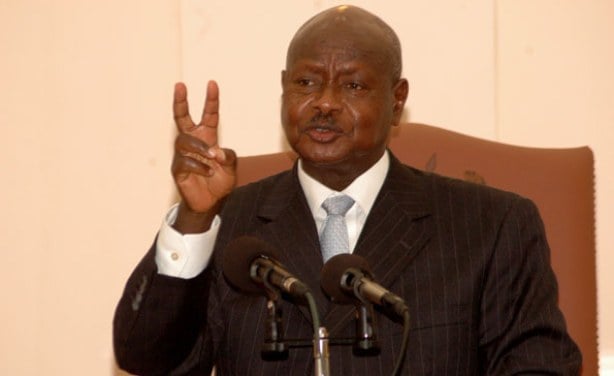Prime
Has Museveni delivered the fundamental change?

President Museveni
What you need to know:
In own words: “We want our people to be able to afford shoes. The Honourable Excellency who is going to the United Nations in executive jets, but has a population at home of 90 per cent walking barefoot, is nothing but a pathetic spectacle” – Museveni, 1986.
Thirty years ago, the nation rallied around a flamboyant 40-year-bush war hero who promised a fundamental change in the country’s politics, unity, restoration of democracy and rule of law, preached the gospel of frugal spending and castigated grasping and overstaying African leaders for their corruption and failure to meet the needs of their citizens.
Tomorrow, President Museveni, 71, the ninth president of Uganda since independence, takes his sixth oath of office since January 1986, following a disputed election. Mr Museveni’s 2016 re-election was contested in the Supreme Court but the judges unanimously upheld his victory, dismissing the case for lack of evidence. Mr Museveni won the elections with 60.75 per cent of total votes cast against Dr Kizza Besigye’s 35.37 per cent.
Mr Museveni, who led his then rebel National Resistance Army (NRA) guerrilla force to victory in 1986 on the back of a 10-point programme, holds the mug for the longest-serving president in the East African region and by the end of his five-year- term (2016-2021), the ruling National Resistance Movement (NRM) Chairman is expected to have ruled Uganda for 35 years, once again, engraving his name in the annals of the country’s history books as one of the longest-serving presidents.
In Africa, Equatorial Guinea President Teodoro Obiang, 73, is the longest-serving leader. Last month, he retained his office with 93.7 per cent of the vote, having been in power since 1979.
Although Museveni’s critics claim he veered off the path of the ideals which took him and other freedom fighters to the bush in 1981 and the promises he made to Ugandans on January 28, 1986, when he took his first oath as president and witnessed by citizens who reveled in a moment of historical significance after years of political instability, Mr Museveni quoting the Book of Genesis, said in June 2013: “Uganda is moving forward” and reminded those blaming him for failing to deliver on the promises that “resources are limited” and that “some things take a bit of time”. He said even God took six days to create the world.
The NRM Secretary General, Ms Justine Kasule Lumumba, who was in P.7 at St Francis Primary School, Budini, now Kaliro district, when President Museveni took his first oath of office, however, insists that the NRM leader who calls himself “Ssabalwanyi” took over a country on the brink of social and economic ruin and that over the years, “cleaning up the mess he inherited is the true mark of his greatness.”
Although Ms Lumumba and other NRM supporters admit that corruption and youth unemployment remain unconquered and therefore, form part of “the blackspots” of Mr Museveni’s 30-year- leadership, Lumumba, however, credits Mr Museveni on economic recovery, peace and security, democracy and rule of law. She praises the NRM leader for ending of extra-judicial killings and tribalism after what she called, “years of turmoil”.
“Our country is safe after years of insecurity, anarchy, economic dis- integration and chaos,” Ms Lumumba said. “The 1986 speech mapped strategic intervention and as a result of NRM’s correct ideology, we deliberated prioritized security to get peace and because of stability we have developments and development is going to bring wealth creation. The 30 years under NRM have been years of peace, stability and social-economic development and democracy.”
Museveni’s 1986 promises
On Wednesday, January 29, 1986, President Museveni who had put on jungle-green military fatigues and combat boots, stood on the front porch of the Parliamentary Building before a rudimentary desk and took the oath as the 9th President of the Republic of Uganda. It was again here, where Mr Museveni promised a fundamental change in his opening inaugural speech: “No one should think that what is happening today is a mere change of guard: it is a fundamental change in the politics of our country.
“In Africa, we have seen so many changes that change, as such, is nothing short of mere turmoil. We have had one group getting rid of another one, only for it to turn out to be worse than the group it displaced…do not count us in that group of people: the NRM is a clear-headed movement with clear objectives and a good membership… we are quite different from the previous people in power who encouraged evil instead of trying to fight it.”
Unlike many heads of state in Africa, Mr Museveni, fresh from the bush, called African countries “very backward” and wondered why, with all their resources and potential, they lagged far behind the developed world in such areas as health care, life expectancy and industry?
With all of Uganda’s “professors, with our excellencies, with our honorable ministers,” he said, “the country cannot make a needle.” “His excellency is going to the United Nations,” he said, apparently in reference to African leaders,” and he is there for meetings with [Ronald Wilson] Reagan and [Mikhail Sergeyevich] Gorbachev, and 90 per cent of his people have no shoes. They are walking bare feet.” Reagan was the 40th President of USA from 1981 to 1989 and Gorbachev was a former Soviet Union leader from 1985 to 1991.
Mr Museveni, who spoke at length without notes, touched on several subjects, including the need for elections, unity and regional cooperation. The first point in NRM programme was the restoration of democracy and Mr Museveni stressed that “the people of Africa the people of Uganda are entitled to democratic government,” adding that “It is not a favour from any government: it is the right of the people of Africa to have democratic government.”
Although police authorities have on various occasions been accused of killing people particularly in clashes with opposition protesters, on security of person and property, the second point of NRM programme Mr Museveni had promised that “every person in Uganda must be absolutely secure to live wherever he or she wishes. Any individual or any group of persons who threaten the security of our people must be smashed without mercy,” adding that “The people of Uganda should only die from natural causes that are beyond our control, but not at the hands of fellow citizens who continue to walk the length and breadth of our land freely.”
The new president then, warned: “Our position, however, has always been very clear. If you play tricks with us, we shall play tricks with you; if you are honest with us, we shall be honest with you; if you are violent against us, we shall be violent against you. We are people who pay others in their own currency and we never use cowardly tactics.”
What happened?
Asked whether President Museveni has delivered the fundamental change he promised in his first swearing-in speech as he prepares for his sixth oath on May 12, Dr Frank Nabwiso who was the secretary to the NRM external wing in Nairobi in the 1980s, quoting the late Kenyan political thinker, Prof Ali Mazrui’s writings, linked the Museveni government to “a river that started flowing from high ground, only to pick dirt along the way” and that when such a river begins “breaking trees and collecting soil” at the same time, its speed diminishes as it absorbs more “dirty materials” on its way to the lake or sea.
“The President had his noble ideas or ideals but two things have happened along the way: First the theory of George Orwell in the Animal Farm permeated the ruling class and created two nations in one- the few rich people with power and money and the majority poor, whose purchasing power is diminishing each passing day. Power brings money and money brings power- this is the philosophy which Museveni is unable to confront and it’s a serious problem,” Dr Nabwiso says.
Within African politics, Dr Nabwiso says Mr Museveni lost the revolutionary ideas he had 30 years ago, a claim the Private Secretary/Political Affairs to President Museveni, Mr David Mafabi, however, attributed to a “misunderstanding” of what has happened to Uganda under President Museveni’s leadership.
Dr Nabwiso, however, insists “Museveni overthrew the military government of Gen. Tito Okello and was sworn in as the new President of Uganda. He then, promised a fundamental change. But it’s him who set the goals and [some of] the goals have become hard for him to fulfil.”
State House explains
Misconception. With Uganda’s turbulent and traumatic post-independence political experience, Mr Mafabi explained that some people misunderstood the meaning of fundamental change the president talked about in his inaugural speech 30 years ago. He explained that the fundamental change focused on restoring the fundamentals of statehood such as building the army, reviving the economy and reinstating human security.
Abuse of human rights. Mr Mafabi says pre-Museveni years pointed to political upheavals epitomised by impunity, extra-judicial killings and abuse of human rights, state failure and loss of hope, discrimination of women, autocratic tendencies, and manipulations which were reminiscent of the old dictatorships.
Longevity of peace. “You may say the President has overstayed, but his longevity has been the longevity of peace and stability. We now have a predictable government and peace,” Mr Mafabi says
Reforms. Mr Mafabi says: “Development is a process and there is no miracle one can do to transform Uganda from least developed to middle income status in just a period of 5 to 15 years. But the president has laid foundation for take-off and the country achieved minimum recovery.”
President Museveni’s ten point programme
Old 10-point plan (1986)
1. Democracy
2. Security
3. Consolidation of National security and elimination of all forms of sectarianism
4. Defending and consolidating National Independence
5. Building an independent, integrated and self-sustaining national economy
6. Restoration and improvement of Social services and the rehabilitation of the war-ravaged areas
7. Elimination of corruption and misuse of power
8. Redressing errors that have resulted in the dislocation of sections of the popu lation and improvement of others
9. Co-operation with other African countries in defending human and democratic rights of our brothers in other parts of Africa
10. Following an economic strategy of mixed economy,
New 10-point plan (2002)
1. Fighting ideological dis-orientation
2. Eliminating sectarianism
3. Improving education to refine human resource
4. Facilitating private sector-led economic growth
5. Developing road, rail and electricity infrastructure
6. Market expansion through regional integration
7. Pursue industrialisation for exports’ value addition
8. Develop the service sector to create jobs
9. Modernise agriculture to increase household incomes
10. Deepen democratic governance
Achievements
Economy has grown; the proportion of the people living under poverty has shrunk from 56 percent to about 19.7%; Inflation has been controlled to an average of 5.7%; primary school enrolment has climbed from 2.23 million to about 8.3 million students today; university enrolment has grown from 6,579 in 1986 to about100,000 students today; tax collection has grown from Shs5b to Shs12 trillion.
Task ahead
Reduce poverty from 19.7 per cent to 14.2 per cent, reduce the number of uneducated young people and those without jobs by at least 50 per cent, increase manufactured exports from 5.8 per cent to 19 per cent; increase access to electricity from 14 per cent to 30 per cent; fight corruption, increase access to safe water from 65 per cent to 79 per cent, in rural areas; from 77 per cent to 100 per cent in urban areas; increase national paved roads from 3,795km to 5,000km; reduce infant mortality rate from 54 to 44 per 1,000 live births and maternal mortality rate from 438 to 220 per 100,000 and reduce stunted children from 31 per cent to 25 per cent.





